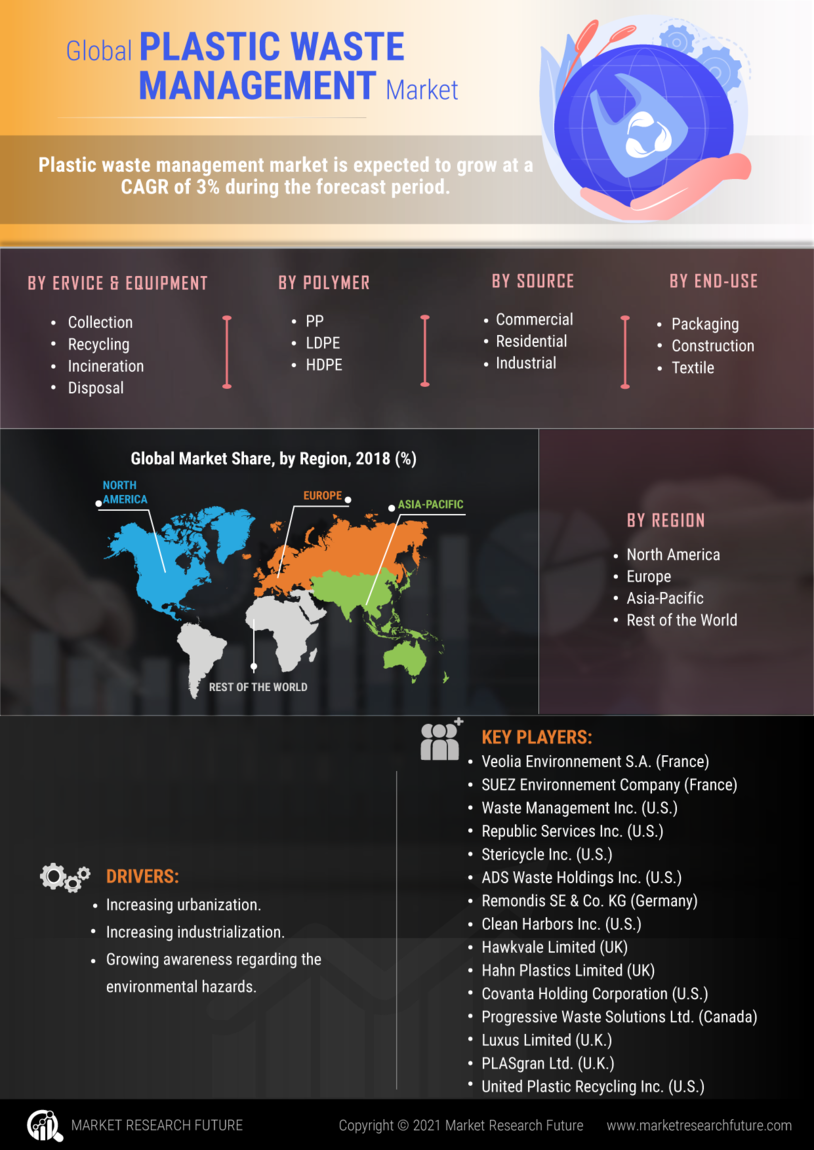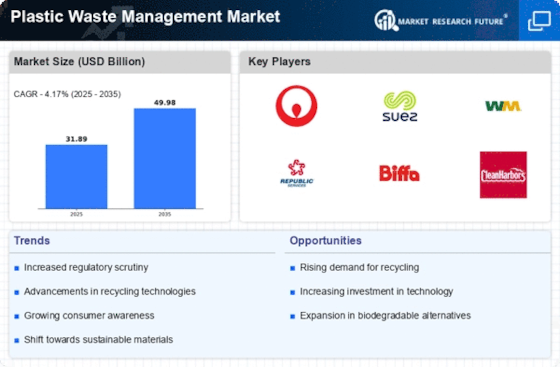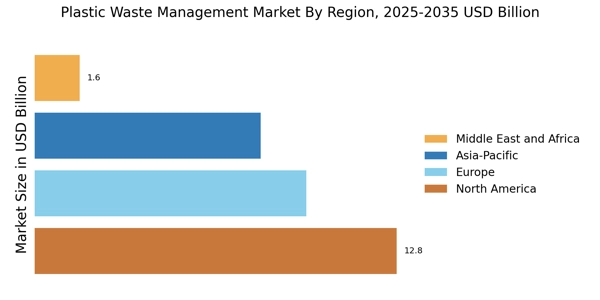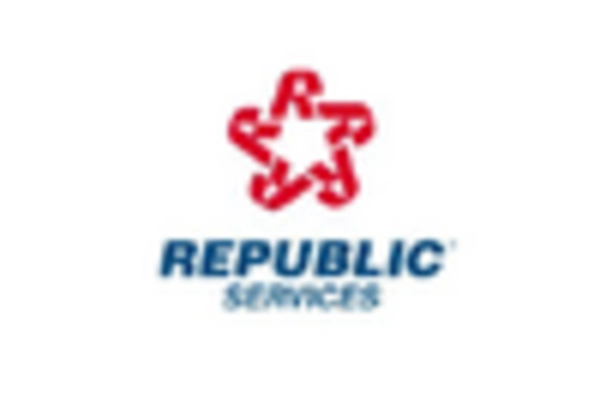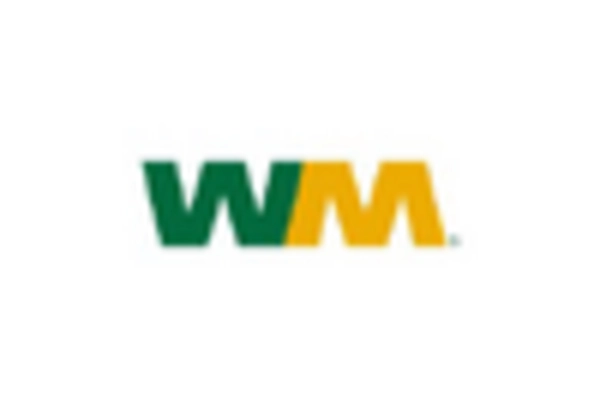Rising Environmental Concerns
Growing environmental concerns are significantly influencing the Plastic Waste Management Industry. Public awareness regarding the detrimental effects of plastic pollution is prompting both consumers and businesses to seek sustainable alternatives. The Plastic Recycling Market is witnessing substantial growth as industries and governments focus on recycling technologies, reducing landfill waste, and promoting circular economy initiatives. Advances in mechanical and chemical recycling processes, coupled with supportive regulations and rising demand for recycled plastics, are driving innovation and investment across this sector. This shift in consumer behavior is leading to increased demand for eco-friendly products and effective waste management solutions. Market data indicates that approximately 70% of consumers are willing to pay a premium for products that are packaged sustainably. Consequently, companies are adapting their strategies to align with these preferences, thereby driving innovation and investment in the Market.
Stringent Regulatory Policies
Regulatory frameworks are becoming increasingly stringent, driving the Plastic Waste Management Industry towards more sustainable practices. Governments are enacting laws that mandate recycling and impose penalties for non-compliance. For instance, several countries have introduced extended producer responsibility (EPR) regulations, requiring manufacturers to take responsibility for the entire lifecycle of their products. This shift is compelling companies to invest in sustainable waste management solutions. As a result, the market is projected to grow at a compound annual growth rate (CAGR) of 5.5% over the next decade, reflecting the influence of these regulatory measures on the market.
Corporate Sustainability Initiatives
Many corporations are adopting sustainability initiatives that directly impact the Plastic Waste Management. As businesses recognize the importance of corporate social responsibility, they are increasingly committing to reducing their plastic footprint. This includes investing in recycling technologies and developing sustainable packaging solutions. Reports suggest that companies that prioritize sustainability are likely to see a 20% increase in customer loyalty. This trend is not only beneficial for the environment but also enhances brand reputation, thereby driving growth in the market.
Investment in Waste Management Infrastructure
Investment in waste management infrastructure is crucial for the advancement of the Plastic Waste Management. Governments and private entities are allocating significant funds to improve recycling facilities and waste processing technologies. Enhanced infrastructure facilitates better collection, sorting, and recycling of plastic waste, which is essential for achieving higher recycling rates. Recent estimates indicate that investments in waste management infrastructure could exceed 100 billion dollars over the next decade. This influx of capital is expected to bolster the efficiency and effectiveness of the market.
Technological Innovations in Waste Management
The Plastic Waste Management Market is experiencing a surge in technological innovations that enhance recycling processes. Advanced sorting technologies, such as AI-driven systems, are being implemented to improve the efficiency of material recovery facilities. These innovations not only streamline operations but also increase the purity of recycled materials, making them more valuable in the market. Furthermore, the development of biodegradable plastics and advanced chemical recycling methods is gaining traction. According to recent data, the adoption of these technologies could potentially increase recycling rates by up to 30% over the next five years, thereby significantly impacting the market.
